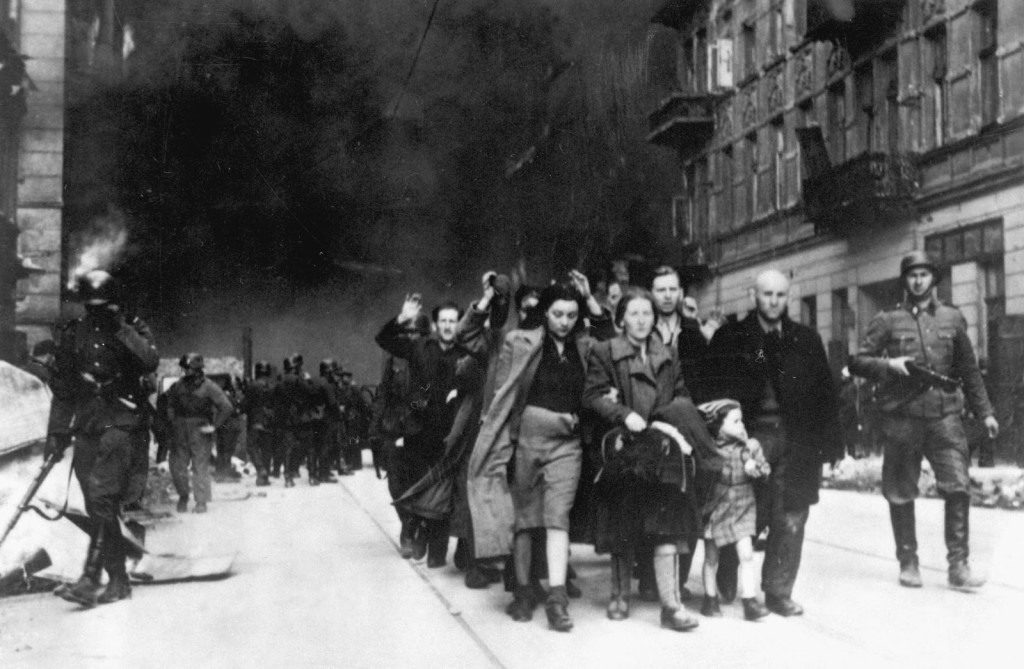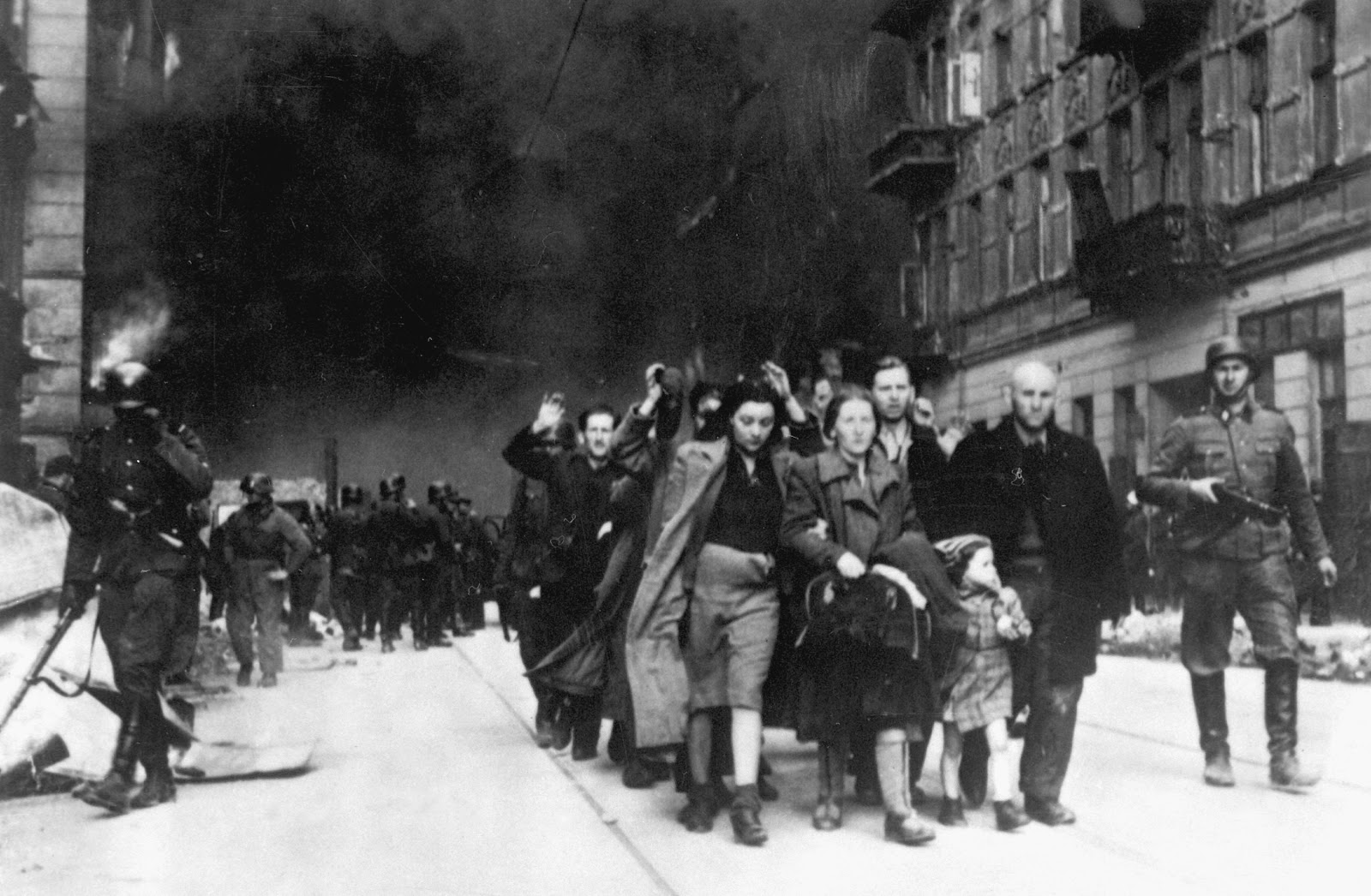Shtetl: A FRONTLINE Digital Premiere

April 5, 2013
Share
Before the Holocaust, Bransk was a quiet little town in Poland. Its 2,500 Jewish residents called it their shtetl, the Yiddish word for village.
By the end of the war, every Jewish person in Bransk was gone. Most had been killed, forced onto trains that took them to the gas chambers at Treblinka. Some were betrayed by their Polish neighbors. Only a few survived.
Today, revisit the story of the Jews of Bransk in Shtetl, a 1996 FRONTLINE film by director Marian Marzynski, which we’re presenting online for the first time. You can watch the full film here.
When it debuted, The Los Angeles Times described the film as “remarkable” and “an amazing, highly provocative work” and The New York Times called it, “an ambitious effort to recapture a vanished piece of Jewish life in Europe and to explore the role that Polish anti-Semitism played in its destruction.”
In Shtetl, Marzynski travels to Bransk with a fellow Holocaust survivor, Chicagoan Nathan Kaplan, intent on learning what happened to Kaplan’s father and the other Jewish residents of the town. They also teamed up with a young Pole from Bransk, Zbyszek Romaniuk, who had embarked on a quest to document the history of Bransk’s Jews.
On April 30, Marzynski explores his own experience as a child survivor of the Holocaust. In Never Forget to Lie, the filmmaker also gathers stories from other child survivors, before their memories are lost to time. Read an interview with Marzynski on the film, and watch a preview here.On their journey, they meet old neighbors who remembered — some who helped the Jews, and others who betrayed them — and confront entrenched anti-Semitism that persists in Bransk today.
The film was controversial when it premiered in 1997. Some critics, including Zbyszek, felt the film unfairly portrayed Poles as anti-Semitic, and as doing little to help their Jewish neighbors. They argued that the film also ignored the stories of those who did risk their lives to help.
Marzynski defended his work, in particular the criticism from Zbyszek. “His team is Polish,” he told FRONTLINE. “And for him, it’s really a game. It’s a competition between the good Poles, the bad Poles, between the Jews and the Poles. And he doesn’t understand that the one murder does not wash out one hero, that it doesn’t work that way. This is not mathematics. And I think that he was not capable of having this type of look at it, coming from the little town that he comes from.”
Inspired by the film, author Eva Hoffman, whose Polish parents survived the Holocaust by fleeing to Ukraine, later told the story of Bransk in a book of the same name. In Shtetl, Hoffman explores the complex relations between Poles and Jews, and tensions that existed even before the Holocaust. Her memories of that time weren’t black and white, either: some peasants betrayed her family to the Germans, while others risked their lives to hide them. In writing the book, Hoffman told The New York Times that she wanted “not only to remember, but to remember strenuously.” (Read an excerpt from Hoffman’s book here.)
After the Film
Read an excerpt of Hoffman’s book on the Shtetl website. You’ll also find stories of five “righteous Gentiles” who risked their lives to help their Jewish neighbors. Find out more about what happened at Treblinka, the largest death camp the Nazis built in Poland, which claimed 1 million lives; explore a timeline and history of Polish-Jewish relations, and find resources for those searching for their own family’s shtetl.
Another Way to Remember
To commemorate this year’s National Holocaust Remembrance Day, which begins on Sunday, April 7, view Memory of the Camps, FRONTLINE’s compilation of footage filmed by Allied troops as they entered the Nazi death camps in 1945. Begun under the direction of Alfred Hitchcock and left forgotten and unfinished for more than 30 years in a London museum, the film offers a harrowing and definitive record of the 20th century’s darkest hour.

Related Documentaries
Latest Documentaries
Related Stories
Related Stories
Explore
Policies
Teacher Center
Funding for FRONTLINE is provided through the support of PBS viewers and by the Corporation for Public Broadcasting, with major support from Ford Foundation. Additional funding is provided the Abrams Foundation, Park Foundation, John D. and Catherine T. MacArthur Foundation, Heising-Simons Foundation, and the FRONTLINE Trust, with major support from Jon and Jo Ann Hagler on behalf of the Jon L. Hagler Foundation, and additional support from Koo and Patricia Yuen. FRONTLINE is a registered trademark of WGBH Educational Foundation. Web Site Copyright ©1995-2025 WGBH Educational Foundation. PBS is a 501(c)(3) not-for-profit organization.





















